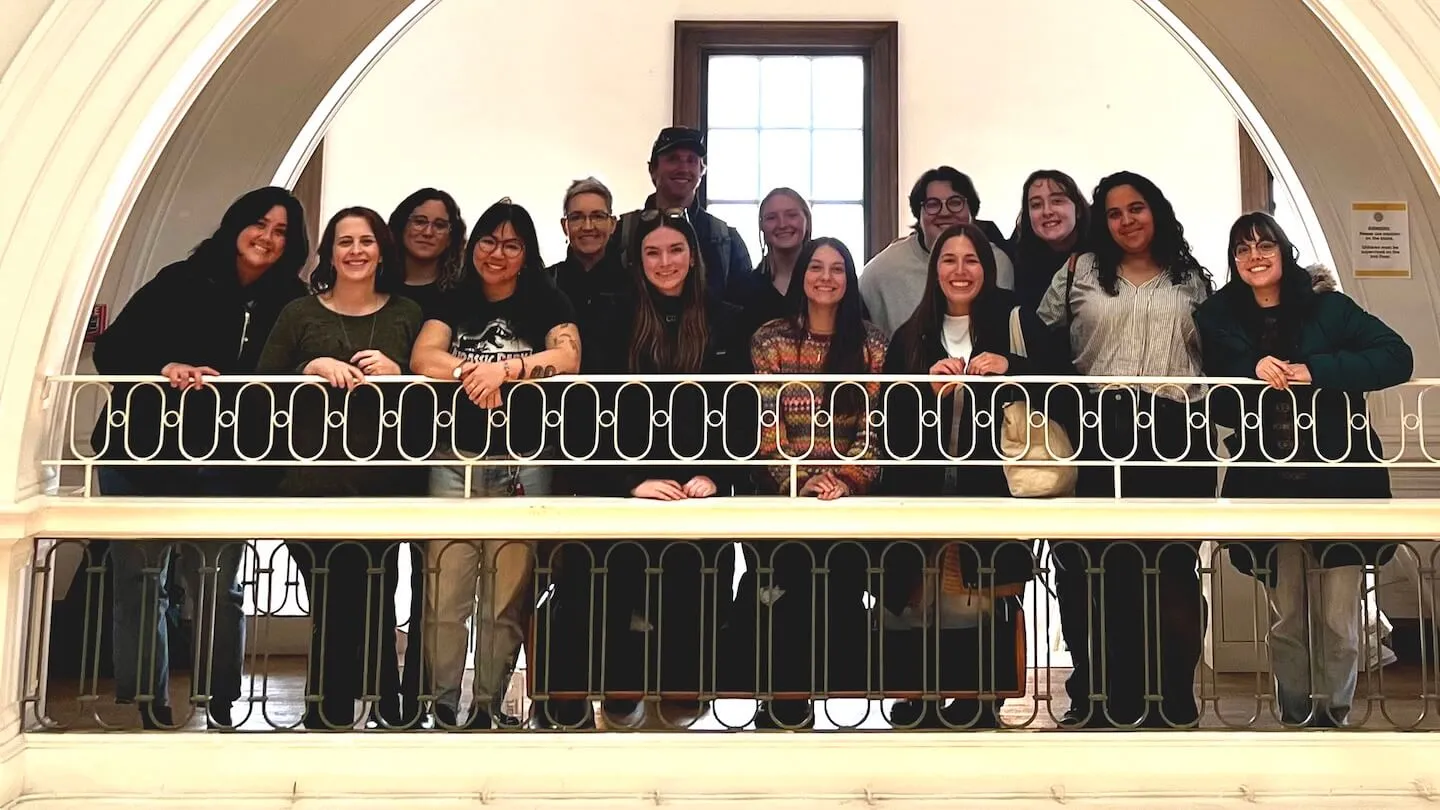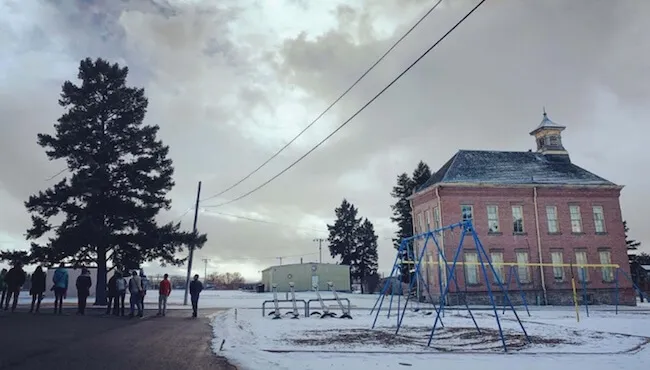When federal funding for an ambitious new UVM mental health internship program focused on Vermont's rural schoolchildren was abruptly cut last spring, the inaugural cohort of interns made a remarkable decision: All ten of them — grad students working toward a Master of Social Work or M.S. in Counseling degree — chose to continue the work in their placement schools anyway.
UVM launched the Catamount Counseling Collaborative for Rural Schools in January. The project set out to train and place 52 school counselors, social workers, and clinical mental health counselors in rural Vermont schools over the next five years.
But in May, just days after the grad students wrapped up their three-day community immersion orientation, they learned that the $3.8 million Mental Health Service Professional demonstration grant from the U.S. Department of Education had been cancelled. Their work would be funded through December 31, but that was it.
“It was definitely stressful,” said CCCRS intern Ashley Cook about getting the bad news last spring. Between her placement at Hazen Union High School in Hardwick and her regular class hours at UVM, there’s no extra time for a job, she explained. “I didn’t know how I was going to pay my bills."
And then there was the gut punch of the bigger picture: the defunding of a program aimed at helping kids in some of Vermont’s highest-needs rural schools. “It was really sad because those kids really need the help,” said Cook.
Fortunately, the grant’s principal investigator, Anna Elliott, has been working tirelessly since May to secure funding from private donors and alumni so that CCCRS can guarantee the interns’ stipend through the end of this academic year, making it possible for them to honor their commitments to their placement schools.
“Anna has been amazing with this,” said Cook.
Elliott, who is an associate professor of counseling in UVM’s College of Education and Social Sciences, said the months since the cancellation have been a challenge. “It’s been more of a grief process than I expected it to be,” she said.
CCCRS was designed to last for five years, more than twice the length of service programs such as the Peace Corps or Teach for America. Those programs, said Elliott, “make really important, short-term impacts, but then the person leaves and it kind of disappears.” The Catamount project aimed to make a more enduring impact.
What kind of an impact could it make?
One of the grad student interns, Joseph Fiorentino, is a former firefighter who spent a decade battling wildfires out west as part of an elite federal Hotshot Crew before coming to UVM. He jumped out of helicopters, worked out for six hours a day, and insisted that everything was fine.
But he wasn’t fine. After a debilitating health crisis, he sought mental health support for the first time, and the effects were profound. When his health improved, he quit his job and resolved to pursue becoming a therapist himself. He wanted to help young men like himself who resisted talking about their feelings.
“The stigma our society has toward mental health is a big thing,” said Fiorentino. “I think that’s exacerbated in rural areas where there’s a strong emphasis on self-reliance.”
Fiorentino experienced that culture of stoicism firsthand growing up on a sheep farm in rural Connecticut. Real men don’t ask for help, he was taught. “You do your work and shut your mouth,” he said.
“I was a pretty messed-up young man myself,” admits Fiorentino. “I had my own battle. I was a man who did not believe in any kind of mental health treatment. When I finally did see someone, it was because my physical health started tanking,” he said.
His doctor had made a surprisingly simple diagnosis: stress.
“If you ever told me a man like me could lose a battle with stress...” Fiorentino laughed in disbelief. “Probably for the first time in my adult life, I cried.”
At Hazen Union High School he’s seizing the opportunity to acclimate boys and young men to the notion that it’s OK, normal even, to need help. Some of the students resist, Fiorentino said, like he once did. “They express resistance in our sessions, but at the same time, they’re being vulnerable,” he said. “I point it out.”
Fiorentino believes his presence in the school makes a difference. “Day by day I’m a stable man in their life and I’m showing up three days a week for them to talk to. I’m not judging them, not telling them how to behave. I’m trying to reach them where they’re at.”
COMMUNITY SUPPORT
Anna Elliott modeled the Catamount Counseling Collaborative for Rural Schools on a similar mental health program she created at Montana State University before she came to UVM. Her intention with both was to establish a resilient program. “How can we build something that can survive,” she explained, “when that funding potentially goes away?”
She didn’t expect funding for the UVM program to get pulled away so soon.
The sliver of hope, said Elliott, is that people in her community have stepped up to offer their “generosity and support and flexibility in helping us figure out how we can still continue without that funding.” Elliott and her CCCRS partners — Robin Hausheer, Danielle Jatlow, and Lance Smith — spent the better part of last year building community alliances and working with school principals and site supervisors to get the program off the ground.
Now her team is leaning on those community connections for support, which they have found in abundance from the Catamount Community Schools Collaborative (created by UVM faculty Bernice Garnett and Peter Knox in 2021), the Vermont Agency of Education, and the mental health agencies already on the ground in the CCCRS partner schools.
It looks promising to Elliott, who noted that she has already identified potential funding options that could allow the team to run the program again next year on a smaller scale.
Elliott was moved that all 10 students agreed to stay on with the program after the grant was cancelled. “It costs a lot of money to be here [in grad school],” she said. “They need to get their hours. The training that they get is really important.” She would understand, she said, if the unpredictability of the program was too much and they chose to bail.
But, of course, none of them did.
When the letter arrived announcing the grant’s cancellation, the group had just spent three days together, bonding over their immersion orientation. “We’d just started to create something really special,” Elliott said. “So I don’t know if I was surprised, but I felt deeply grateful and touched that they decided to stay.”

